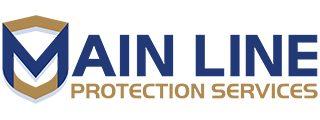Introduction to Workplace Safety and Investigative Analysts
Sure, keeping your workplace safe might seem like common sense, but there’s a whole lot more to it than meets the eye. That’s where investigative analysts come in. They’re the pros who dig deep to figure out what’s really going on behind the scenes at your workplace. Think of them as detectives for your business, making sure everything’s running smoothly and safely. They look into all sorts of stuff, from routine safety checks to sniffing out potential hazards that you might not even think of. So, hiring an investigative analyst isn’t just ticking a box for safety; it’s about being proactive and staying one step ahead. Essentially, they help keep your team safe, cut down on accidents, and make sure you’re following all those tricky regulations. Plus, they bring peace of mind, knowing that an expert’s got your back in keeping the workplace secure.
Identifying Hidden Workplace Safety Risks
When you bring an investigative analyst into the mix, you dig deeper into workplace safety than ever before. These pros have a knack for spotting risks that aren’t always obvious. Think about the wiring behind the walls or the old pipes buried underground. Stuff that doesn’t scream danger but can cause big problems. They use their skills to uncover these hidden hazards before they turn into real issues. This means fewer accidents and a safer environment for everyone. It’s like having a safety detective on your team, making sure your workplace doesn’t just look safe but actually is safe.
The Role of an Investigative Analyst in Enhancing Safety
An Investigative Analyst digs deep to reveal hidden dangers in your workplace you might not even know exist. They are like your business’s own detective, solving mysteries behind accidents or potential hazards. By analyzing past incidents and current practices, they pinpoint where things can go wrong. Here’s the thing: it’s not just about fixing what’s broken. They look ahead, predicting future risks and creating plans to dodge them. This means fewer accidents, safer employees, and, ultimately, a healthier bottom line for your business. In short, an Investigative Analyst turns your workplace into a much safer place, protecting both people and profits.
Investigative Analysts: Not Just for High-Risk Industries
You might think that hiring an investigative analyst is just for the high-stakes world of finance or top-secret government projects. That’s not the case. Every workplace, regardless of its size or sector, can reap real benefits from bringing an investigative analyst into the safety fold. These pros aren’t just about cloak-and-dagger stuff; they play a crucial role in creating a safer, more secure environment for everyone.
First off, they’re your eyes and ears on the ground. Investigative analysts dive deep to root out the real risks that might not be immediately obvious. Whether it’s spotting a pattern of minor accidents that could indicate a bigger problem or identifying vulnerabilities in your security protocol, these experts have a knack for seeing the details most of us miss.
But their value doesn’t end with spotting issues. These analysts are problem solvers. Once they’ve identified a threat, they’re all about finding practical, effective ways to mitigate it. This might mean recommending changes to your physical security, streamlining your operational procedures, or even helping to foster a culture of safety that engages every single employee in the mission to protect one another.
Think of investigative analysts as an investment in your company’s future. By preempting accidents, enhancing security, and boosting employee well-being, they help you avoid costly disruptions and potential legal headaches down the line. Plus, showing your team that you’re committed to their safety can only be good for morale and, by extension, productivity.
So, no matter if you’re running a cozy cafe or a sprawling manufacturing complex, an investigative analyst can do wonders for your workplace safety. It’s not about dramatizing everyday operations with spy-level surveillance; it’s about having a dedicated professional whose sole focus is keeping the workplace safe, secure, and running smoothly.
How Investigative Analysts Uncover Hidden Dangers
Investigative analysts are like workplace detectives. They dive deep into what’s happening at a company, using skills that mix observation and data analysis to spot hidden dangers. Here’s the thing – they’re really good at finding problems you didn’t even know were there. Think about stuff like fraud, theft, or safety risks that aren’t obvious at first glance. By digging through records, talking to employees, and even doing undercover work, they paint a clear picture of the risks lurking in the shadows. The goal? To stop these issues before they blow up into bigger problems. Their work leads to safer environments, which is a win for everyone – employees feel secure, and employers dodge costly disruptions. So, engaging an investigative analyst is more than just an extra expense; it’s a strategic move to guard your workplace against threats that are tough to spot with a regular checkup.
Preventing Workplace Incidents Before They Happen
Having an investigative analyst on your team is like having a safety net that catches problems before they hit the ground. Imagine this: instead of reacting to an accident after it has happened, you stop it in its tracks. That’s what these experts do best. They’ve got the know-how to dig through the not-so-obvious signs and sniff out potential dangers lurking in the shadows of your workplace. They aren’t just looking at what’s in front of them; they’re looking two steps ahead. By analyzing past incidents and current work practices, they identify patterns or red flags that might have gone unnoticed. It’s not about having a crystal ball but about having a trained eye that can spot a potential problem before it sparks into something bigger. The outcome? A safer workplace, fewer accidents, and a team that feels confident and protected every day they clock in. Plus, let’s not forget the money saved on costs that come after an accident. It’s a win-win situation. Having someone whose job is to keep everyone safe by preventing incidents isn’t a luxury; it’s essential. This proactive approach to workplace safety can make all the difference.
The Financial Benefits of Hiring an Investigative Analyst
Hiring an investigative analyst for workplace safety might seem like a hefty expense upfront, but it’s a move that can actually save you money in the long run. Think about it. By spotting safety risks early, an analyst helps you avoid costly accidents and injuries. This means less money spent on workers’ compensation, legal fees, and insurance premiums. Not to mention, a safer workplace boosts employee morale and productivity, which translates to better business performance and, ultimately, more profit. So, investing in an investigative analyst can offer significant financial benefits by reducing potential costs and enhancing the overall efficiency of your business. Plus, it shows your commitment to employee well-being, possibly resulting in lower turnover rates and training costs for new hires. Simply put, spending a bit now on an investigative analyst can save you a lot more down the line.
Beyond Safety: Other Benefits of an Investigative Analyst
Hiring an investigative analyst does more than just boost workplace safety. These pros dive deep, spotting fraud that can bleed money from a company. They’re like detectives, uncovering not just theft but also areas where your company is losing cash without realizing it. Think about it; they can pinpoint where you’re spending too much or getting too little in return. They’re all about making sure your finances are as tight and efficient as your safety protocols. But it doesn’t stop there. These analysts improve employee morale too. Knowing there’s a watchdog keeping the workplace safe and fair makes employees happier and more productive. They trust that their concerns are taken seriously and that bad actors can’t hide. Plus, this trust translates into stronger loyalty to the company, reducing turnover. In turn, lower turnover means less money spent on hiring and training, keeping more cash in the business. It’s clear, an investigative analyst doesn’t just add an extra layer of safety; they bring a range of benefits that keep the company strong, secure, and efficient.
How to Choose the Right Investigative Analyst for Your Business
Choosing the right investigative analyst for your business is critical. Start by looking into their credentials. A reputable professional should have a solid background in law enforcement, security, or any related field. Experience is crucial too. Ask about the types of cases they’ve handled, especially those similar to your business needs. Next, consider their success rate. How effectively have they resolved past cases? Communication is another vital aspect. Ensure they can explain complex situations clearly and keep you in the loop. Lastly, check their reputation. Read reviews, ask for references, and speak to other businesses who’ve hired them. Remember, the right analyst should not only meet your current needs but also be a reliable resource for future safety and security measures in your workplace.
Conclusion: The Long-Term Impact of Investing in Workplace Safety
Investing in an investigative analyst for workplace safety isn’t just a short-term fix. It’s a move that pays off far beyond the initial costs. Think of it like this: by identifying risks early on, you cut down on accidents. Fewer accidents mean less downtime and, most importantly, lower costs related to injuries and legal battles. Over time, this creates a safer environment. Employees feel secure, and when employees feel safe, they’re more productive and loyal. This isn’t just about preventing harm; it’s about building a culture that values safety and respect. The impact? A more engaged workforce and a reputation that attracts top talent. So, the money you put into hiring an expert goes way beyond saving on direct costs. It’s about investing in your company’s future, making it a place where people want to work, and where safety is part of the DNA. This strategic move can set you apart from competitors, showing you’re not just about profits but about people. That’s a powerful message in any industry.


